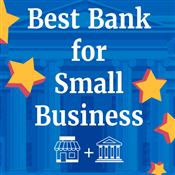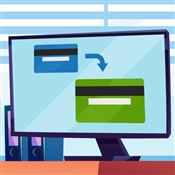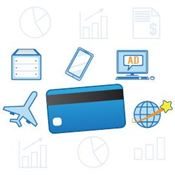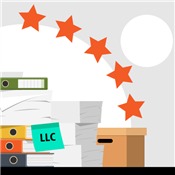How Do Small Business Loans Work
Funding can be essential for new business owners. How do small business loans work? Can you qualify? Are they expensive? Read on to learn more.
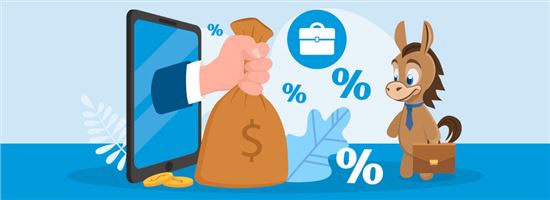 |
Starting a new business may seem daunting. And for those without capital, it can be impossible.
Even an established business could be in trouble if you lack the money to grow.
Without the right funding, you could miss out on growth opportunities. Or you could get overwhelmed by expenses.
However, with the right lender, there's potential.
That's where small business loans come in. But how do they work?
Read on to learn how these loans can help your business and see if you qualify.
What is a Small Business Loan?
A small business loan is funding to help you achieve your business goals. You can get them from traditional banks, credit unions, government institutions, and online or alternative lenders.
These loans are typically used to grow a business, help with daily expenses, or pay for other debts. But some loans let you start a brand new business.
If you're starting a business, one approach to raising funding is to look for investors. This can work great, but you'll have to give up some ownership in your company in exchange for the funds.
With a small business loan, you can still gain funds without losing ownership of your company.
They are typically cheaper than credit cards. However, most are only available to those with a solid financial background.
Will you qualify? Let's cover that next.
What Can You Do With a Small Business Loan?
Small business loans cater to different business needs. They typically have limitations on where you can use them.
For example, the SBA 504 Loan can be used for machinery and equipment but should not be used for inventory. The lender's website or contract will likely mention this.
Your business proposal should also mention where you intend to use the loan. Depending on the loan, you can use the funds for:
- Cash flow for daily expenses
- Debt consolidation or refinancing
- Purchasing equipment
- Purchasing inventory
- Purchasing real estate
- Remodeling your real estate
- Marketing or advertising
- Expanding the business
- Franchising the business
Remember that you can't use small business loans to cover personal expenses such as home purchases or personal vehicles.
Are Small Business Loans Easy to Get?
Small business lenders consider many factors when reviewing your loan application. It can be more challenging to get approved for a loan if you don't have their minimum requirements.
Also, meeting these requirements does not guarantee approval. But here are the things they typically look for:
Factor #1: Your Personal and Business Credit Scores
Most lenders will look at your personal credit scores since it tells them how well you manage your debts. A good personal credit score is considered 670 or above.
If you've been in business for a while, you may also have built business credit. It's best to have a business credit score of 80.
A poor credit score can limit your options. Worse, it may automatically lead to a denied application.
Factor #2: Your Loan Requirements
Loan requirements depend on the lender and type of loan you apply for.
Aside from credit scores, lenders typically require:
- Solid financial record
- Sufficient cash flow
- Time in business
To identify a solid financial record, lenders will look at your annual revenue. They'll also check if you meet their debt-to-income (DTI) and debt-service coverage ratio (DSCR) requirements.
These numbers will let them know how much loan your business can still take on, if any. And as small business owners, it's best to determine what you can afford and plan for its repayment. Sometimes, a down payment for the loan is required upfront (typically up to 30%).
Because lending to new businesses can be risky, lenders also typically prefer 2 years as the minimum time in business. But small business loans are also available for those wishing to start a new business.
Here's an idea of what requirements you can expect based on the type of loan:
| Lender | Type of Loan | Revenue | Time in Business | Personal Credit Score |
|---|---|---|---|---|
| Funding Circle | SBA Loan | $400,000/yr | 2+ years | 650 |
| OnDeck | Business Term Loan | $100,000/yr | 1 year | 625 |
| Kabbage | Business Line of Credit | $3,000/mo | 1 year | 640 |
| Bank of America | Commercial Real Estate Loan | $250,000/yr | 2 years | Unlisted |
| Balboa Capital | Equipment Financing | $100,000+/yr | 1 year | 620 |
| Credibly | Merchant Cash Advance | $180,000/yr | 6 months+ | 500+ |
| National Funding | Commercial Auto Loans | $250,000/yr | 6 months | 575+ |
Factor #3: Your Business Plan
You must also have a convincing business plan. It can build the lender's confidence in your company and show that you have a purpose in mind for the loan.
Stating exactly what you'll use the money for could increase your chances of getting approved.
Factor #4: Your Business Industry
When applying for bank loans, some industries are considered riskier than others. They could be seasonal or controversial industries, or those with inconsistent revenue such as food industries.
Those easily affected by legislations are also considered high-risk. This includes alcohol and firearm industries.
That said, the more stable your industry is, the better your chances of approval. Least-risky industries include medical, power, and hotel booking industries.
Factor #5: Your Collateral (if necessary)
Secured business loans will require collateral. Some lenders will even ask for a personal guarantee. These will back up your loan in case your business fails to pay.
That said, the value of collateral required is typically equal to or more than the loan amount. For some types of loan, the collateral is what you will purchase itself (i.e., the equipment you'll purchase for an equipment loan).
If a personal guarantee is required, then you'll have to pledge personal assets as well.
Business Loan Approval Odds
Traditional banks and government institutions could take weeks or months to approve your application. However, online lenders might be able to process your application within minutes.
Keep in mind that a lack of requirements can lead to rejection or only partial approval. For example, according to Federal Reserve's Small Business Credit Survey (2019), 43% of businesses applied for financing.
9% of them received none, 14% received some, and 20% received all financing requested.
| Reasons | Percentage of Businesses that Failed to Seek Financing |
|---|---|
| Low credit score | 36% |
| Insufficient collateral | 35% |
| Debt load | 35% |
| Insufficient credit history | 33% |
| Weak business performance | 23% |
| Other reasons | 5% |
54% of businesses who applied for $250,000 or less were not approved for the full amount.
| Reasons | Percentage of Businesses that Received Less than Requested Funding |
|---|---|
| Low credit scores/ high credit risk | 91% |
| Low profitability | 67% |
| Firms in the urban areas | 56% |
| Startup firms (time in business) | 63% |
If you're prepared for all of this, i.e., you have a good business and personal credit score, strong finances with ample cash flow, and a well-thought-out business plan, it may be easier for you.
Small Business Loans for New Businesses
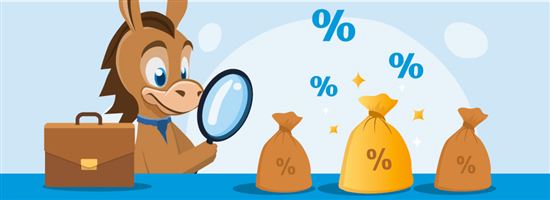 |
You can opt for government-backed microloans when starting a business and online small business loans if you're a new business. They're more accessible compared to other types of loans.
Microloans from the SBA
The U.S. Small Business Administration guarantees the loans of some intermediary lenders. They are typically nonprofit, community-based organizations that offer microloans of up to $50,000.
These loans are specifically for small businesses and not-for-profit childcare centers.
SBA Microloans are ideal for those starting a business because lenders typically don't need a credit history and won't ask for a high income to get approved.
But because requirements will still vary per lender, some still require a minimum credit score.
How does it work?
On average, SBA microloans are around $13,000. SBA provides the funding while lenders process the application, distribute, and manage the loan. The maximum repayment term is six years.
If you choose this loan, keep in mind that you cannot use it for existing debts or purchasing real estate. However, you can use it for working capital and buying supplies and equipment.
Line of Credit from Online Lenders
As a startup, a business line of credit could be easier and faster to get than a traditional loan.
Some online lenders accept applications even with bad credit scores.
And a business line of credit is a flexible option. Instead of a lump sum loan, you get a revolving line of credit where you can draw upon repeatedly when needed.
Compared to traditional banks, you can get your application results from online lenders within minutes.
How does it work?
The maximum amount you can borrow depends on the lender. Bluevine, for example, can lend you up to $250,000, while Fundbox can offer up to $150,000.
If you get a revolving credit line, you only need to pay interest for the amount you borrowed, replenishing the loanable amount every time you make a payment.
Some online lenders offer unsecured small business loans, meaning you don't need business assets to qualify, which could be a big help for a small business.
Remember that some loans will have monthly fees while others won't.
Small Business Loans for Expanding Your Business
If you're already an established business, say, with five years or more of experience, then you may be looking to expand through small business loans.
A stellar financial background will give you more choices. You can choose from various small business loans from government-backed loans, banks, credit unions, or alternative lenders.
SBA Loans: 7(a) Loans and 504 Loans
The U.S. Small Business Administration Loans (SBA Loans) may be the most popular if you're looking for government-backed loans.
Aside from microloans, they also have guaranteed 7(a) Loans and 504 Loans.
The guarantee works similarly to collateral. If a business fails to repay a lender, the lender can recover the guaranteed amount from the SBA.
This lessens the risk to lenders while increasing accessibility for small businesses.
How does it work?
Each loan has limitations on what it can and cannot be used for.
SBA 7(a) Loans can be used for the following:[1]
- Working capital
- Payment for other business debts
- Purchasing supplies, fixtures, or furniture
SBA 504 Loans can be used for:[2]
- Purchasing or improving facilities
- Purchasing equipment and machinery
- Purchasing or improving the land, buildings, or utilities
However, you can't use them for inventory, working capital, payment of other business debts, or investing in rental real estate.
Term Loans
Term loans are widely available from various lenders, from traditional institutions to alternative or online lenders.
You can choose from short, intermediate, or long-term loans.
Remember that longer terms will typically require stronger revenue and more years in the business. So short-term loans may be the most suitable for small businesses.
How does it work?
Simply put, lenders give you a lump sum of the amount you borrowed, to be repaid regularly with a fixed amount. Repayment is typically made monthly, but this depends on your lender.
There are term loans available for almost any business need.
Generally, you can use them for:
- Working capital
- Purchasing inventory or equipment
- Purchasing or refinancing real estate
- Expanding the business
You can get about $25,000 to $5 million in small business loans for a term loan. Down payment and interest rates vary from lender to lender.
As a small business, you can borrow $5,000 to $500,000, depending on your application.
Small Business Loans for Specific Purposes
There are also small business loans available for particular needs.
If you need to purchase a company vehicle, new real estate, upgrade equipment, or start a professional practice, there are specific loans for each.
Auto loans
An auto loan could be a good option if your business needs a truck, van, or car. You can also use it to refinance an already owned company car.
What makes it convenient is that the vehicle itself serves as collateral.
Heavier vehicles may be considered for equipment financing. Bank of America, for example, limits auto loans for vehicles less than 2.5 tons.
Although you can technically use other small business loans to purchase these vehicles, comparing auto loan rates against them could help you compute the best option.
How does it work?
These are term loans used for business vehicles only. The lender provides you a lump sum that you must repay for a specific period with interest.
When purchasing vehicles, a lower monthly payment isn't always better. Lower monthly payments lead to longer terms. Sometimes, you pay more with a longer term due to interest.
Commercial real estate loans
As the name suggests, these are loans used for purchasing or refinancing real estate.
Although typically a term loan, some lenders offer a commercial real estate line of credit. Wells Fargo, for example, can offer a credit line of $50,000 to $500,000 for this type of loan.
Real estate loans backed by the SBA are also available as 504 Loans.
How does it work?
To apply for a real estate loan, you will need good credit, an ideal debt-to-income ratio, and a down payment.
Once approved, you will have to use most of the loan for your business. For example, 51% should remain for your business if you plan to lease the property.
Equipment Loans
If your business uses equipment, you can expect the need to upgrade equipment or prepare for its maintenance.
Equipment loans are specifically there for that purpose. Most are term loans. The equipment you purchase is the collateral itself, so there's not much risk for lenders.
These loans are also available as a line of credit or lease to own.
How does it work?
Through equipment loans, you can get financing for 100% of the cost of the equipment. Repayment can sometimes be up to the life of the equipment.
But the con is that if your equipment breaks early, you'll still have to pay for the broken equipment per the agreed term.
Lenders will also typically ask for a down payment. Because these loans have lesser risks for lenders, you can expect lower interest rates.
Both traditional banks and online lenders finance equipment loans.
Medical Practice Loans
Whether you're a doctor, a veterinarian, or a different healthcare professional, small business loans are available to help fund your practice.
Bank of America, for example, has medical loan offers for each, including physicians and optometrists. Their offers can amount to up to $5 million.
These loans may be available as term loans or credit lines.
How does it work?
Medical practice loans are available from traditional banks and online lenders, which you can use as you see fit in your business.
Typically, you can use them to:
- Start your practice
- Purchase a property for your practice
- Advertise or market your practice
- Purchase or upgrade equipment
- Use as payroll for your employees and partners
- Purchase ambulatory vehicles
- Fund community outreach programs
- Fund mergers or acquisitions
Other Small Business Loans to Consider
There are other "small business loans" if the previous ones don't work for you. Some of them are not exactly loans. But they'll help your cash flow either way.
Invoice Factoring
With invoice factoring, you sell your unpaid invoices to a factoring company. That means, they'll be taking over the collection of payments from your clients.
It's great as it takes work off your shoulders. But some businesses get concerned that they could lose their clients' trust. With the right factoring company, however, your clients can still experience good service.
You can typically get an advance of up to 90% of the value of your invoices.
How does it work?
You first look for a factoring company that will suit your needs. They differ in factoring rates, fees, funding amount, and industry specialization.
Then you'll just have to apply, just as how you'd apply to a lender for other loans. After approval, you can select from your unpaid invoices which you would prefer to sell.
Your approval usually depends on your clients' backgrounds. After all, it's them who'll be paying the factors and not yourself.
Once approved, you can receive the cash advance and use it as needed. You'll receive the full amount after your client pays the factor.
Merchant Cash Advance
The merchant cash advance is an advance you can get based on your debit and credit card sales. It's sometimes called business cash advance.
That said, it's best used by businesses taking credit card payments.
It can be quite expensive compared to other types of loans. So, you'll want to use it as a last resort, or budget accordingly.
How does it work?
You'll receive a lump sum with MCA, similar to a term loan. It's the repayment methods that make it different.
Some MCAs are repaid through a percentage of your debit and credit card sales. That means, repayment is deducted automatically until the amount is paid in full. That said, the higher the credit card sales, the faster you can repay.
Other MCAs perform fixed withdrawals from your business bank account. They'll be withdrawing a fixed amount daily or weekly regardless of your sales volume. In this case, it's easier to predict your repayment schedule.
Business Credit Cards
Business credit cards are convenient for when you need a little extra cash. Loans from credit cards are more suited for short-term expenses. If you're making a large purchase, it wouldn't be the best option.
Different credit cards have various interest rates. Ideally, you'll only use a credit card for purchases you're sure you can repay in the short term. Otherwise, payment for interest could pile up and bury you in debt.
The credit limit is typically higher with small business credit cards than personal credit cards.
How does it work?
A business credit card works just like a personal credit card. Only, it's used to pay for business expenses. At the end of every billing cycle, you'll receive a statement that shows what you owe.
You can choose to pay the total amount or just the minimum amount due. Interest will be charged on the remaining balance if you choose not to pay in full.
Depending on the type of credit card, you can get rewards for travel and restaurants. Other cards offer bonuses for phone bills and office supplies. You can also choose a flat-rate rewards card if you spend on different types of expenses.
Trade Credit
Say, you're a small business selling merchandise. Trade credit can be beneficial for you. It's a business-to-business (B2B) agreement where you can exchange goods (and services) with another company without having to pay for it, yet.
That said, suppliers are usually at a disadvantage. Which is why they typically offer discounts for businesses who could pay earlier than the due date.
It's a great way to increase inventory and earn money even before cashing out. You can then use some of the money you earned from selling to pay the suppliers.
How does it work?
You get into an agreement with another company or supplier to receive their goods or services. Typically, contracts give you 7, 30, 60, up to 120 days before you have to pay. This will be called "net 7", "net 30", "net 60", etc.
If, for example, you get a discount of 3% for repaying 10 days early, it'll show as 3%/10 net 30 or 3/10 net 30. A 5% discount for 15 days early payment will look like 5/15 net 30, and so on.
As a small business who needs to pay for the products, these will be listed as accounts payable. Suppliers, on the other hand, will have to consider them as accounts receivable.
Cash Flow Loans
Cash flow loan is an unsecured loan you can use as working capital. As the name suggests, the main factor for determining approval is your cash flow.
If you're a small business just starting out, then your business doesn't have much history to show. You might not have enough assets for a secured loan, or you haven't built your credit history yet. You can opt instead for a cash flow loan.
Because you're not required a collateral, interests are typically high. Oftentimes, a personal guarantee or a blanket lien is needed. Other fees such as origination fees and late payment fees are also typically higher than that of traditional small business loans.
How does it work?
Online lenders typically offer cash flow loans to help with your inventory, payroll, or other business expenses. They'll review your financial statements and business model. Then lenders will use them to project your business' performance.
Financing terms such as interest rate and repayment will be set after approval. Also, repayment depends on the structure of the loan. Some cash flow loans are in the form of term loans while others can be in a form of a line of credit.
Compared to traditional small business loans, however, expect shorter terms.
Small Business Loans FAQs
There are other things you might be asking yourself. Let's talk about payments, if you should really apply for small business loans, and when is the best time to do so. We've also thrown in some tips if you're a startup.
How are Small Business Loans Paid Back?
Payments for small business loans vary based on the type of loan.
- Payment through installment: You agree to regularly pay for a set period until you have repaid the total amount borrowed. This is typical for term loans, where you are lent a lump sum upfront. Repayment may either be done monthly, bi-monthly, weekly, or daily.
- Payment through revolving credit: This payment is for business lines of credit and can be either made weekly or monthly. But it differs from other payments in that you only pay for the amount you borrowed, not the entire loan amount. Interest rates will also only be based on the amount you used.
- Payment through cash flow: This could be through your debit and credit card sales (as in merchant cash advances) or invoices (as in invoice financing). When you repay depends on the type of loan. For example, you'll have to repay the lender daily for merchant cash advances.
You can make payments directly through your bank accounts (through ACH) or through checks that may come with a check processing fee.
If you make your payments through ACH, you allow the lender to access your business account to make the necessary withdrawals directly.
Should You Get a Small Business Loan?
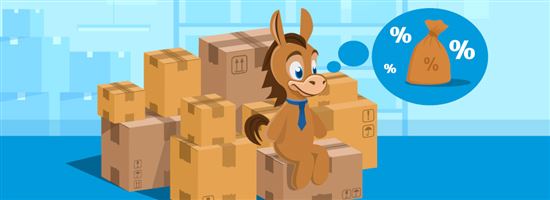 |
Small business loans will undoubtedly help you reach your goals as a business. However, you need to be at the right state to take on a loan.
A loan can help make or break your business. It can give you the funds needed to grow your business or cover needs during slow seasons. Or it can bring huge debt to your business, and put both your business and personal assets at risk.
You want to be clear on your purpose for getting the loan. Some loans are more suitable than others. Some are ideal for the long term, while others are for short-term needs.
When is the Best Time to Get a Small Business Loan?
It might not seem like it, but the best time to apply for a small business loan is when you have good credit and ample cash flow.
When your company is in good standing, you'll be able to meet requirements easily. You'll also be able to "shop around" for lenders instead of taking on a more expensive loan that's easier to qualify for.
It's also essential that you, as an individual, are in a comfortable financial position if you decide to apply for loans needing a personal guarantee.
If you find that you and your business are already in an ideal position, your goals can determine when you'll need to upgrade equipment, hire new employees, or expand the business.
How to Get a Small Business Loan for Startups?
Given the requirements of small business loans, you might think that it's hard to apply for one as a new business.
But there are those that lend you money even with your limited time in business. Alternative or online lenders usually offer these loans.
Microloans and business credit cards are easiest to get funding as a startup. Microloans have less stringent requirements compared to other loans.
But you can also check out:
- Business lines of credit
- SBA loans
- Short-term loans
- Collateral-based loans
When applying for a small business loan as a startup, it's best to focus on your business plan. Discuss your financial projections and how you plan to use the loan.
That way, the lender can build their confidence in your company even without much experience.
The Bottom Line
In summary, small business loans are important extra funding for your business needs.
Lenders will have different terms or offers, depending on the type of loan. If you qualify and get approved, you'll be handed the amount in a lump sum or through lines of credit.
Repayment will vary, but typically, they could be made through installment, cash flow, or credit lines. You could perform this through direct transfer or check payments.
There are more types of small business loans not discussed in this article. But we've focused on those you can use as someone relatively new in the business.
Remember that the best time to apply for a loan would be when you're comfortable financially.
References
- ^ U.S. Small Business Administration. How do I use the 7(a) loan?, Retrieved 9/7/22
- ^ U.S. Small Business Administration. How do I use a 504 loan?, Retrieved 9/7/22
- ^ U.S. Small Business Administration. Am I eligible?, Retrieved 9/7/22
Write to Karen Eloriaga at feedback@creditdonkey.com. Follow us on Twitter and Facebook for our latest posts.
|
|
| ||||||
|
|
|



